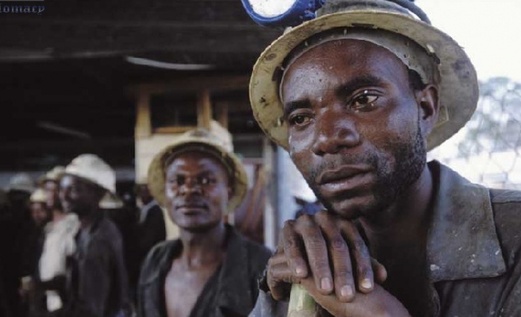Who is to blame for the unrest in Zambia?
- By Catherine Wood
 0 Comment(s)
0 Comment(s) Print
Print E-mail China.org.cn, September 7, 2012
E-mail China.org.cn, September 7, 2012
|
|
|
Influx of Chinese investment has supported and strengthened Zambia's developing mining sector. |
Recently, there have been numerous acts of violence at Chinese-owned mines in Zambia. While the influx of Chinese investment has supported and strengthened Zambia's developing mining sector, these developments have accompanied new challenges in: worker safety, minimum wage, and settling conflicts with employees. The situation seems to be deteriorating rapidly, despite Chinese concessions, and is becoming more violent.
Most recently on Aug. 4, striking Zambian coal miners at Chinese-owned Collum Coal killed a Chinese manager by running him over with a mine cart. Two other Chinese managers were injured in the August riot resulting in the arrest of 16 Zambian workers. Sources indicate that the scuffle was a misunderstanding over the effective date in an upcoming $80 increase in monthly pay.
The violent episode occurred just after July legislation went into effect raising the Zambian minimum wage 67 percent on average. The legislation's goal is to create equal advantages for foreign investors and better quality of life for the Zambians.
Unfortunately, this is not the first problem we have seen at the Chinese-owned mine ― a 2010 violent episode involved the shootings of striking workers. Major worker complaints cited low pay and poor working conditions. Managers cite employee theft and low work ethic. The situation is also complicated by a language barrier.
Among the industry leaders in the area is NFCA Mining, the Zambian unit of parent company China Nonferrous Metal Mining Group. Despite its size and notable financial exposure in the region, NFCA was repeatedly fined for substandard safety conditions and gained a local reputation for poor employee satisfaction. And it looks like NFCA and Collum Coal are not the only Chinese mines in the area with these problems. Human Rights Watch published a study last year which states that Chinese mines were below average in the region in terms of safety and worker conditions. It should be noted that conditions have improved since the study was published.
If the area continues to demand higher wages through violence and legislation changes, there will be one obvious outcome for the Zambians; an unidentified executive at Collum Coal said, "If costs get too high, Zambia will be hurt...Investors will think about going to other countries." After all, Zambia is not the only country [in Africa] with copper and coal resources.
While China is not the only foreign country to operate mines in Zambia, it is among the most prevalent. Chinese sources surmise that since Chinese foreign direct investment (FDI) has come to Zambia, over 10,000 jobs have been created; China Nonferrous alone has invested about $2 billion.
China is currently the largest foreign direct investor in sub-Saharan Africa. Since 2005, Chinese companies have invested over $56.4 billion in the region.
Keeping this in mind, it's easy to understand China's disdain for its reputation as an exploitive force in the region. Many have drawn the comparison between modern-day China and former European colonialism in Africa. While Zambian coal miners point to small paychecks and poor conditions, China takes a big picture approach and sites new railroads, shipping ports, and complex mining infrastructures.
So is China an exploitive capitalist profiteer, or a benevolent third party investor?
Perhaps we can gain perspective on the present by looking to the past. In this case, we do not have to look too far.
In the ten years following the economic crash of 1961, China's economic policy stressed the importance of agriculture. Recovery came slowly as China underwent a cultural revolution.
Rapid recovery did not take place until the mid 1970s when Hua Guofeng and Deng Xiaoping set a plan in motion which called for immediate and aggressive utilization of foreign technologies and foreign direct investment. As history unfolded, this sudden burst of outside investment (which was secured by China's mineral assets) created jobs, companies and infrastructure, springboarding China into years of rapid growth and production. Some argue that this foreign direct investment (FDI) advantage, combined with wise investment and hard work ethic, propelled China into the leader in global production that it is today.
Chinese FDI in Africa is growing in comparison to more Western FDIs the region had historically. This is in part because China is seeing great returns on its investments in Zambia and partly because China has the liquid capital to invest that Western FDIs have tied up in a credit crunch. One thing is for sure ― Chinese FDI in Zambia is doing positive things for the region like building infrastructure and creating more lucrative jobs. Zambia is not a victim in this situation and it certainly isn't the only country in Africa with mineral deposits. If Zambians don't want to work for Chinese companies, they don't have to - this is not a situation of slave labor. Zambians would be wise to not agitate its second-largest trading partner and run off the advantages Chinese FDI brings.
The author is a freelance writer currently based in Beijing.
Opinion articles reflect the views of their authors, not necessarily those of China.org.cn







Go to Forum >>0 Comment(s)